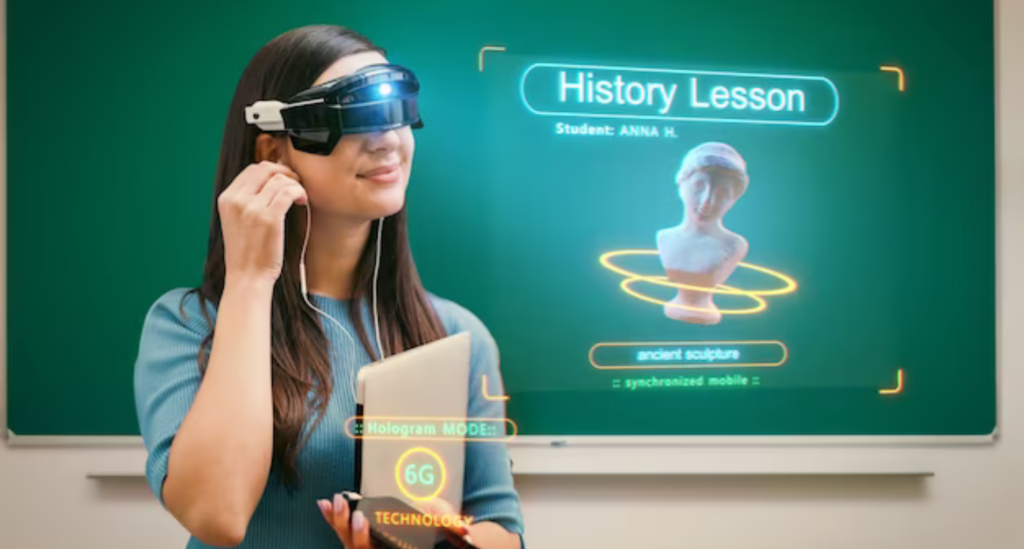OpenAI is taking a step into the future of education by using the power of its ChatGPT technology to develop AI-powered tutoring tools that personalize learning and empower teachers. With the implementation of this tactic, OpenAI hopes to minimize initial worries about ChatGPT being misused for academic dishonesty.
The recent INSEAD Americas Conference in San Francisco, OpenAI’s Chief Operating Officer, Brad Lightcap, unveiled the company commitment to exploring educational applications for ChatGPT. Early concerns about the AI tool’s capacity to facilitate cheating, Lightcap to acknowledge the formation of a dedicated team focused on maximizing ChatGPT’s positive impact on education.
The release of ChatGPT quickly led to concerns among educators globally, fearing its potential to enable cheating and plagiarism. However, Lightcap highlighted the transformative shift in vision, stating, “Most teachers are now trying to figure out ways to incorporate (ChatGPT) into the curriculum and into the way they teach.” Recognizing this shift, OpenAI wants to support educators in navigating integration of ChatGPT into classrooms responsibly.
Acknowledging teachers’ concerns, Lightcap revealed, “We at OpenAI are trying to help them think through the problem, and we probably next year will establish a team with the sole intent of doing that.” The proposed team will build upon existing efforts to adapt ChatGPT for educational use, with OpenAI already collaborating with organizations such as Khan Academy and Schmidt Future to develop AI-powered tutoring tools as well as support educational initiatives in underserved communities.
Despite initial reservations, educators are increasingly recognizing the potential benefits of ChatGPT in education. Lightcap emphasized the tool’s capacity to assist in various aspects of learning, from generating creative content to providing personalized tutoring, showing its versatility in educational landscape.
As global education and training cost of projects reach approximately $10 trillion by 2030, the potential for AI in education becomes more apparent. ChatGPT emerges as a versatile tool for classrooms, offering tailored learning content and assisting teachers in curriculum development. Andrew Mayne, a former OpenAI employee and current AI consultant, highlights the diverse applications of ChatGPT, envisioning it as a non-judgmental tutor accommodating different learning styles and aiding teachers in creating engaging educational materials.
What are The Benefits of ChatGPT for Teachers?

There are many benefits to using ChatGPT for Teachers. These benefits include:
- Personalized learning experiences for each student
- Immediate feedback on student work
- More time for teachers to spend with their students
- Improved student-teacher relationships
- More personalized learning experience for all students
- Increased student engagement and motivation
- Student outcomes gets improved
What are The Challenges of Using ChatGPT for Teachers?
There are also some challenges to using ChatGPT for Teachers. These challenges include:
- Cost of AI-powered tutoring tool
- The need for teachers to be trained on how to use AI-powered tutoring tools
- Potential for AI-powered tutoring tools to replace teachers
ChatGPT for Teachers has the potential to revolutionize the education sector. By providing students with personalized and adaptive learning experiences, AI-powered tutoring tools can help them to reach their full potential. Additionally, AI-powered tutoring tools can help to improve student-teacher relationships and create a more personalized learning experience for all students.
The Future of Education: AI-Powered Learning
Advancements in artificial intelligence (AI) are poised to revolutionize education by providing personalized, adaptive, and engaging learning experiences. AI can tailor educational content to individual needs, identifying areas for improvement and offering targeted guidance. It can also monitor student progress real time, adjusting task difficulty levels and providing feedback accordingly. AI can create interactive and immersive learning experiences, such as virtual simulations and gamified modules, fostering curiosity and motivation.
It can also empower teachers by creating customized lesson plans, grading assignments, and providing individualized feedback. However, integrating AI into the educational landscape requires ensuring data privacy, security, equity, accessibility, and responsible AI development. Despite these challenges, AI has the potential to revolutionize education by providing students with personalized, adaptive, and engaging learning experiences. By addressing these challenges, we can harness its power to create a future of limitless possibilities in education.
In conclusion, OpenAI’s ChatGPT is poised to revolutionize education, offering a transformative approach to teaching and learning. As the educational landscape continues to evolve, the integration of AI-powered tutoring tools, such as ChatGPT, opens new possibilities for a more personalized and effective learning experience.









